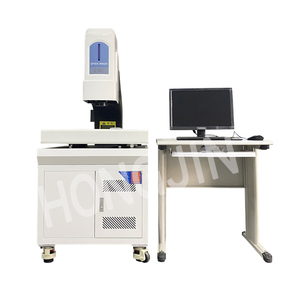Introduction to Diameter Measuring Machines
Diameter measuring machines are precision instruments designed to gauge the diameter of various objects with high accuracy. These devices are essential in industries where precise measurements are critical, such as manufacturing, engineering, and quality control. They come in different types to suit various measurement needs, from simple manual calipers to advanced laser-based systems.
Types and Applications
The spectrum of diameter measuring machines includes manual, semi-automatic, and fully automatic models. Manual versions are typically used for quick, on-the-spot measurements, while semi-automatic and automatic machines offer higher precision and are suitable for repetitive tasks in a production line. These machines are utilized in tasks ranging from checking the diameter of wires and cables to ensuring the correct sizing of pipes and tubes in the construction industry.
Features and Materials
Key features of a diameter measuring machine include its measurement range, resolution, and accuracy. These machines are constructed from materials that ensure durability and stability, such as stainless steel and high-grade plastics, to maintain measurement integrity. Advanced models may also include digital readouts, data logging capabilities, and compatibility with computer interfaces for analysis and reporting.
Advantages of Accurate Diameter Measurement
Accurate diameter measurement is crucial for maintaining quality standards and ensuring the functionality of components. A reliable diameter measuring machine ensures that parts fit together correctly, reducing waste and improving the efficiency of the manufacturing process. Additionally, precise measurements can significantly contribute to the safety and longevity of the final product.
Selection Considerations
When selecting a diameter measuring machine, consider the measurement range required, the environment in which it will be used, and the level of precision needed. It's also important to consider the object's material, as some machines are specifically designed for conductive or non-conductive surfaces. The choice of machine will ultimately depend on the specific application and the level of detail required for the task at hand.
Complementary Equipment
In addition to diameter measuring machines, complementary equipment such as surface roughness testers and roundness measuring systems can provide a comprehensive overview of an object's dimensions and surface quality. These tools, when used together, offer a complete solution for dimensional analysis and quality assurance in various industrial settings.

























 浙公网安备 33010002000092号
浙公网安备 33010002000092号 浙B2-20120091-4
浙B2-20120091-4